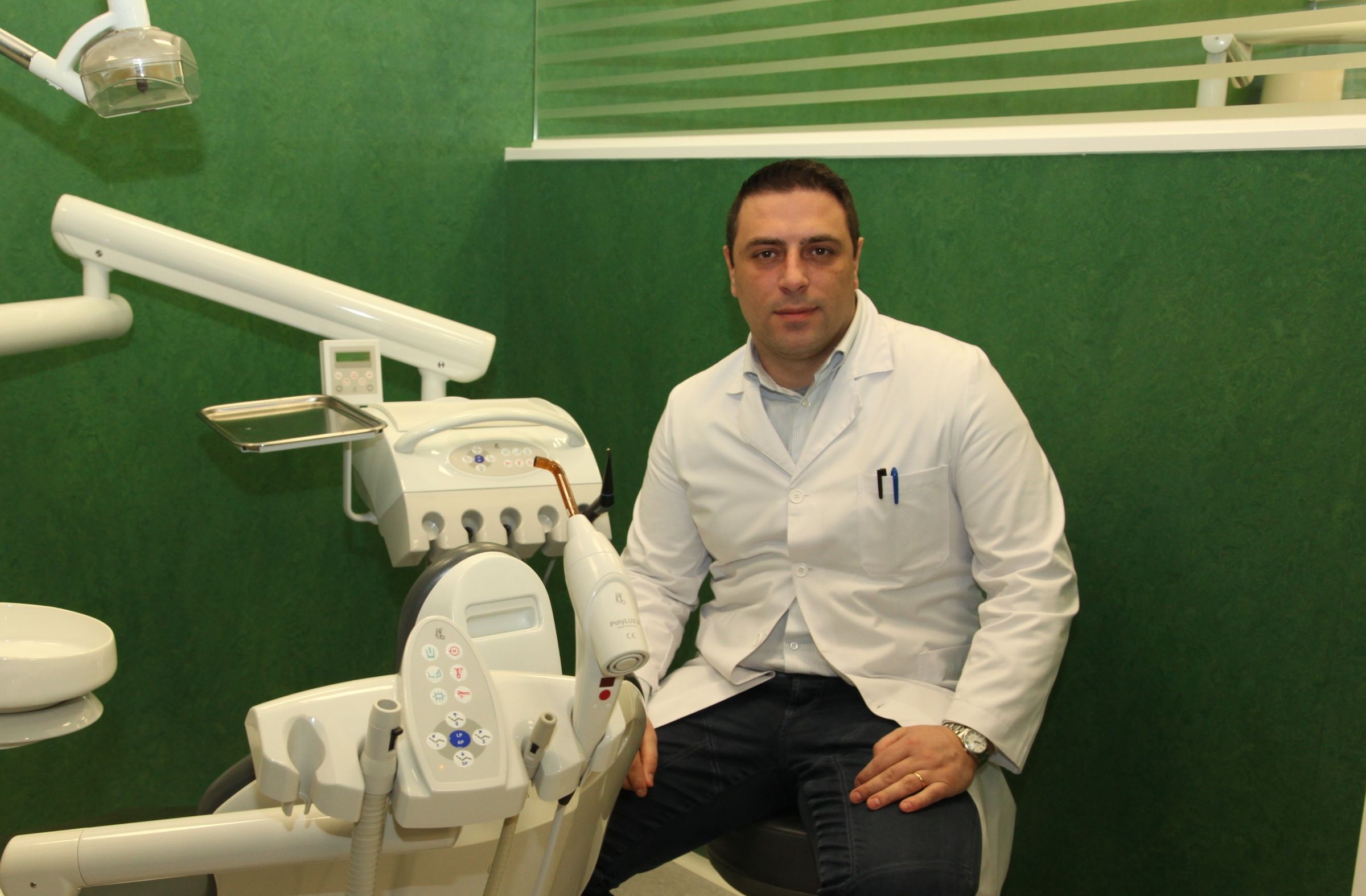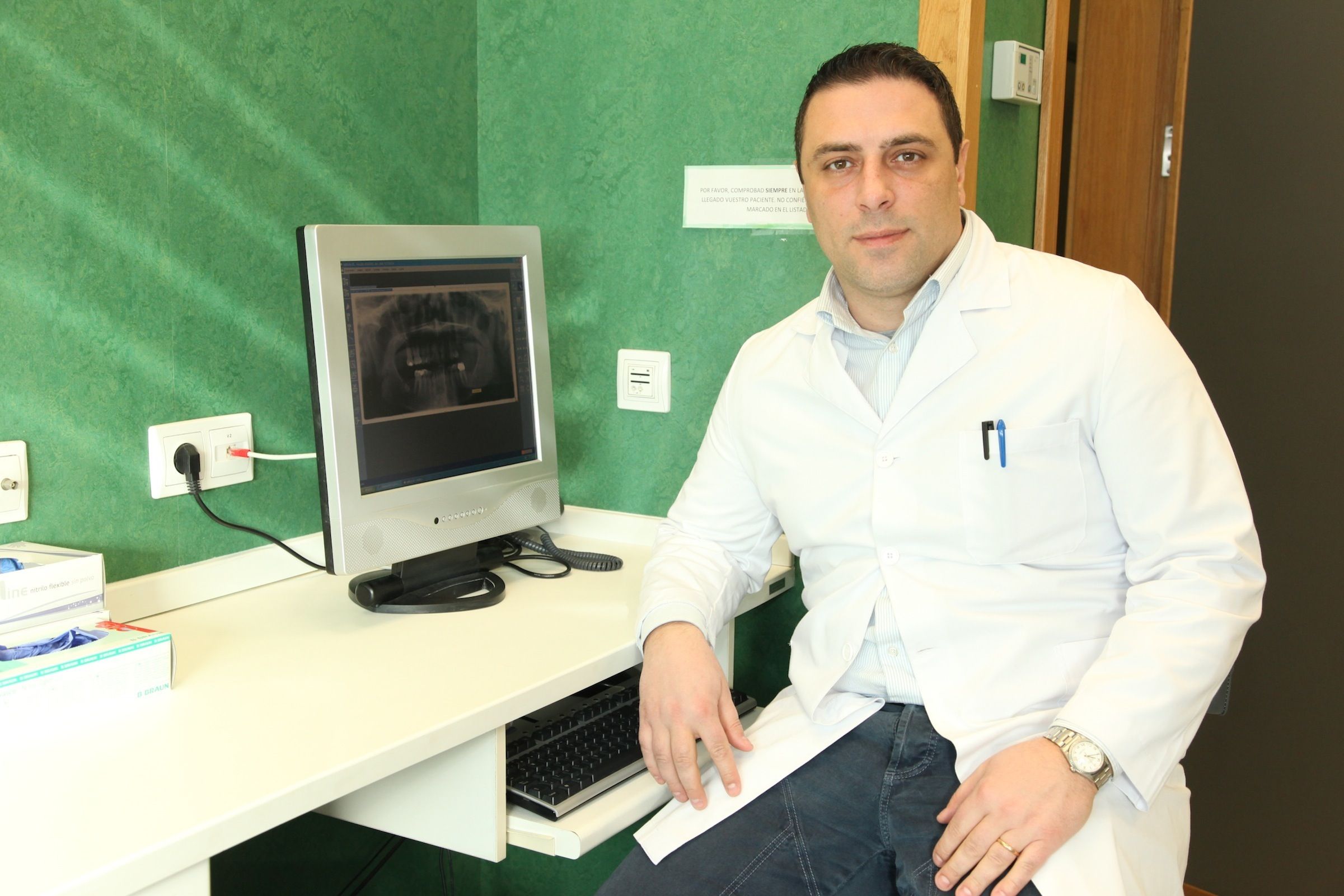Salvatore Sauro, professor at the University CEU Cardenal Herrera, has directed a research project which evaluated for the first time the remineralising effects of phosphoproteins’ biomimetic analogues applied onto mineral-depleted dentine in combination with bioactive dental adhesives
Salvatore Sauro, Professor of Dental Biomaterials and Minimally Invasive Dentistry at CEU Cardenal Herrera University has led a research project which focused first on the use of phosphoproteins’ biomimetic analogues in combination with experimental bioactive resin-based dental adhesives to remineralise the mineral-depleted dentine at the bonding interface of teeth filled with common restorative dental composites. The biomimetic analogues used in this study permitted the remineralisation of collagen fibrils through precipitation of hydroxyapatite at intra-fibrillar level, so that the biomechanical properties of the demineralised dentine, such as the elastic modulus and hardness were completely recovered. The results of this recent study have been published in Dental Materials, a journal ranking number one in the world’s top dental journals.

Clinical minimally invasive treatments require the elimination of dental caries-infected tissues in order to stop the progression of bacteria to the pulpal chamber and maximise the reparative potential of the remaining partially demineralised tissues. In order to encourage the remineralisation of the remaining partially demineralised dental tissues after caries removal, glass ionomer cements are currently used to favour the diffusion of the specific ions into mineral-depleted dentine. Nevertheless, these cements have no therapeutic ability to bio-remineralise the partially demineralised caries-affected dentine, accurately. It means that glass ionomer cements, along with most of the restorative materials currently used in minimally invasive dentistry, do not induce nucleation of new hydroxyapatite crystals within the demineralised dentine collagen at intra-fibrillar level.
According to Professor Sauro, “the most important problem related to dental fillings in demineralised dental tissues, such as caries-affected dentine, is the lack of therapeutic bio-remineralisation which can extend the durability of the resin-dentine bonding interface created with dental adhesives and resin composites.”
Biomimetic remineralisation
The study led by Professor Sauro has demonstrated that the use of resin-adhesive doped with bioactive micro-fillers applied onto demineralised dentine pre-treated using biomimetic analogues of the phosphoproteins, such as polyaspartic acid (PLA) or sodium trimetaphosphate (TMP) represents an efficient and innovative therapeutic strategy to trigger biomimetic remineralisation processes at the bonding area between dentine and restorative materials. This result is a further step to the prolific research activity of Professor Salvatore Sauro at University CEU Cardenal Herrera, who is currently focusing the energy of his entire group of research on the development of innovative bioactive and biomimetic restorative materials for therapeutic and aesthetic restorations of teeth affected by large caries lesions.
Professor Sauro and collaborators have also shown that by using analogues of phosphoproteins in combination with bioactive adhesive resin-based materials doped with calcium and phosphates, it is possible to improve the longevity of the adhesion of dental composite restorations to dental tissues due to the biomimetic remineralisation of mineral-depleted dentine at the bonding interface.
The scientific results generated by Professor Sauro in collaboration with the University of Granada and King’s College London Dental Institute, has been published in Dental Materials, a scientific journal ranking number one in the world’s top dental journals
Research team
Professor Salvatore Sauro, head of Dental Biomaterials and Minimally Invasive Dentistry (bilingual course) at University CEU Cardenal Herrera has led this study in close collaboration with Professors Raquel Osorio and Manuel Toledano from the Department of Dental Materials of the University of Granada and Professor Timothy F. Watson from the Department of Biomaterials, Biomimetic and Biophotonics of the King’s College London Dental Institute.
Doctor Sauro has been working for over 15 years on dental adhesion, applied dental biomaterials, but during the last five years he has also focused on the development and assessment of bioactive/biomimetic materials. He has published more than 70 scientific articles in international high-impact scientific journals, about aspects related to adhesion and durability of different dental-resins, dentine hypersensitivity and the remineralisation of the dental tissue through bioactive and biomimetic materials. Moreover, an International and a Brazilian patent was generated and published by Professor Sauro and his collaborators.
Salvatore Sauro is also Visiting Professor of Dental Research at the Universidade Federal do Ceará (Brazil) in collaboration with Professors Victor Feitosa and Lidiany Rodrigues. As well as collaborating on various occasions with professor Manuel Toledano of the University of Granada and with professor Timothy Watson of King’s College in London, he also collaborates with other distinguished academics such as David Pashley and Franklin Tay of the Medical College of Georgia; Ricardo Carvalho of the University of British Columbia en Vancouver (Canada); Tao Jianga and Yining Wang of the University of Wuhan (China); Arzu Tezvergil-Mutluay of the Dentistry University of Turku, (Finland); Bart Van Meerbeek, University of Leuven (Belgium).
Link to abstracts of the article “Influence of phosphoproteins’ biomimetic analogs on remineralization of mineral-depleted resin-dentin interfaces created with ion-releasing resin-based systems”, in PubMed and Science Direct.







